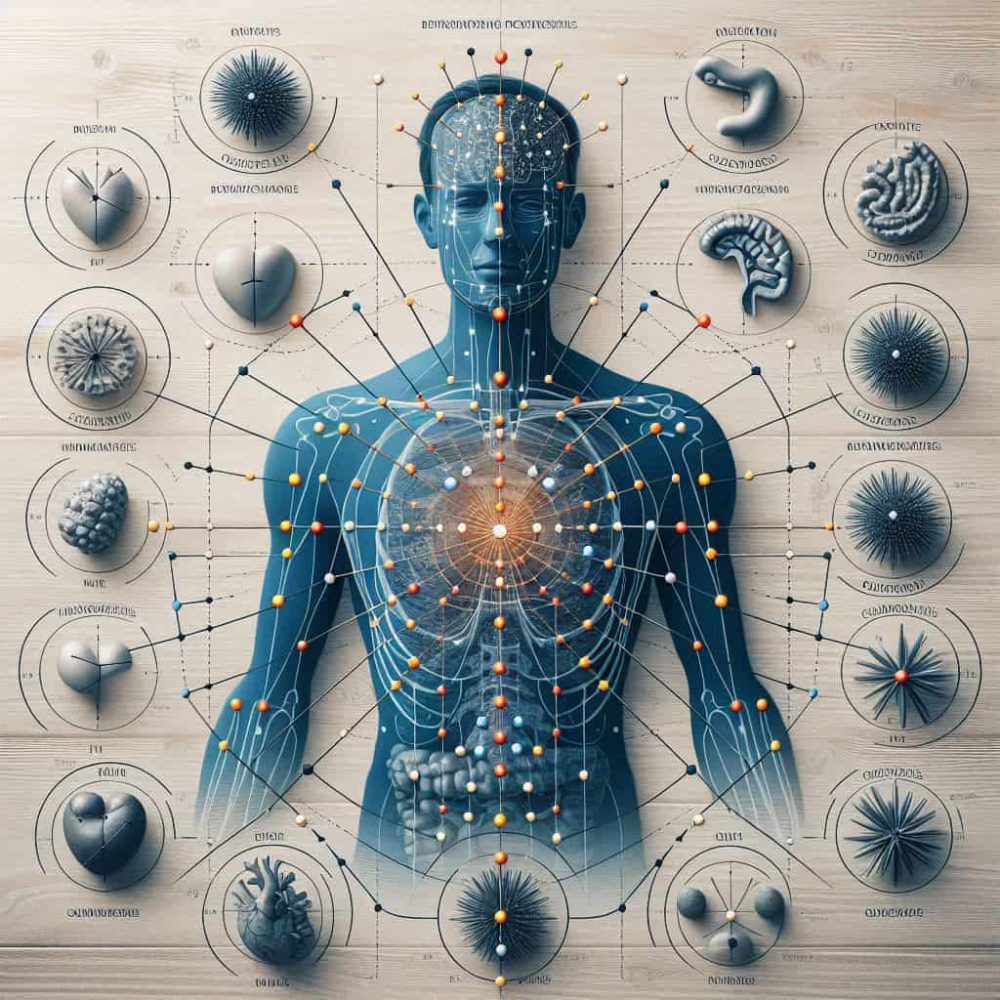Acupuncture for Insomnia: An Insight Into Restoring Sleep Balance
Acupuncture for Insomnia has become increasingly popular as a natural way to restore sleep balance and alleviate insomnia. Sleep disturbances are a prevalent issue in our modern society, impacting a large number of people globally. If you have attempted various over-the-counter remedies or implemented lifestyle adjustments in an effort to enhance your sleep, yet have not achieved the desired results, you might be considering alternative methods.
- Natural Regulation of Sleep-Wake Cycle
- Reduction of Stress and Anxiety
- Hormonal Balance for Better Sleep
- Treatment of Underlying Health Conditions
- Enhanced Sleep Quality
- And Much More ...

Acupuncture For Insomnia: How To Get Here
Preston
Fulwood
Lea
Broughton
Kirkham
Freckleton
Leyland
Chorley
Blackburn
Blackpool
Bolton
Preston
Fulwood
Lea
Broughton
Kirkham
Freckleton
Leyland
Chorley
Blackburn
Blackpool
Bolton
Acupuncture for Insomnia Information
The Ancient Practice of Acupuncture and Its Modern Relevance
Acupuncture is a time-honored medical technique originating from China, which entails the precise insertion of slender needles into designated points on the body.
These points, referred to as acupuncture points or acupoints, are thought to be interconnected pathways that facilitate the flow of vital energy, known as Qi.
Through the stimulation of specific points, acupuncture seeks to restore the harmonious flow of energy and enhance overall health.
Acupuncture is based on Traditional Chinese Medicine (TCM), which sees health as a state of balance within the body.
With a rich history spanning over 2,500 years, acupuncture has gained worldwide recognition as a highly regarded form of treatment.
Understanding the concept of Qi is essential in the practice of acupuncture. Qi is believed to be the vital energy that circulates through the body’s meridians.
When this flow is disturbed, it may lead to various physical, emotional, or psychological conditions, such as insomnia.
Research in the field of acupuncture has provided substantial evidence supporting its effectiveness in stimulating the body’s natural healing processes.
Through the activation of specific points, acupuncture has the ability to improve blood flow, stimulate the nervous system, and release neurotransmitters.
Understanding the physiological changes that occur during acupuncture is essential for managing sleep disorders effectively.
Research has indicated that acupuncture has been found to have a positive impact on sleep quality, helping individuals fall asleep faster and increasing the overall duration of sleep.
How Acupuncture Helps in Treating Insomnia: A Comprehensive Insight
Regulating the Sleep-Wake Cycle Naturally
With the expertise of a seasoned acupuncturist, the sleep-wake cycle can be effectively regulated by stimulating endorphins and other neurotransmitters.
This stimulation promotes deep relaxation and enhances the overall quality of sleep.
With its ability to balance the body’s energy flow, acupuncture for insomnia can assist in resetting your biological clock and promoting a restful sleep pattern.
The sleep-wake cycle, also known as the circadian rhythm, is a fundamental internal process that governs the natural cycle of sleep and wakefulness over a 24-hour period.
Disruptions in this cycle may result in insomnia and other sleep disorders. In acupuncture, sleep patterns can be influenced by targeting specific points like Shenmen (HT7), Sanyinjiao (SP6), and Anmian.
Located on the wrist, Shenmen, also known as Heart 7, can soothe the mind and relieve anxiety, often the underlying cause of insomnia.
Situated above the ankle, Sanyinjiao, also known as Spleen 6, is believed to balance the liver, spleen, and kidneys, promoting hormonal equilibrium and alleviating stress.
Located behind the ear, Anmian plays a crucial role in promoting restful sleep by aiding in falling and staying asleep.
Through the precise stimulation of specific points, acupuncture for insomnia encourages the body to naturally produce melatonin, which is crucial in regulating sleep patterns.
Having higher levels of melatonin can assist in resetting the sleep-wake cycle, resulting in an improved ability to fall asleep at night and wake up feeling rejuvenated.
Reducing Stress and Anxiety Through Acupuncture
Stress and anxiety often contribute to sleep disruptions. Acupuncture can promote relaxation and alleviate stress by stimulating the parasympathetic nervous system.
Creating a serene environment that promotes deep relaxation can help facilitate a restful night’s sleep.
Like an acupuncture expert, the parasympathetic nervous system, also known as the “rest and digest” system, works to conserve energy and induce a state of relaxation.
Acupuncture activates specific acupoints to help alleviate the body’s stress response. Specific points on the body, such as Yintang, Baihui, and Neiguan, are highly effective in relieving anxiety and stress.
Yintang, a commonly used acupuncture point, is known for its ability to reduce stress and enhance mental clarity.
Baihui, also known as GV20, is renowned for promoting relaxation and balance in the mind and body.
Neiguan, also known as Pericardium 6, is commonly utilised in the treatment of anxiety, palpitations, and emotional distress.
By stimulating these specific points, the body can release endorphins and serotonin, neurotransmitters known to enhance mood and induce relaxation.
This neurochemical response aids in reducing the hyperarousal state commonly linked to insomnia, facilitating the attainment of peaceful sleep.
Hormonal Balance: Acupuncture’s Role in Regulating Sleep Hormones
Hormonal imbalances can disrupt sleep patterns. Acupuncture for Insomnia is effective in targeting specific acupoints linked to hormonal regulation, such as the hypothalamus-pituitary-adrenal (HPA) axis.
With its expertise in rebalancing hormonal systems, acupuncture effectively addresses the hormonal disturbances that can lead to insomnia.
The HPA axis involves intricate interactions among the hypothalamus, pituitary, and adrenal glands. It significantly impacts the regulation of stress responses and circadian rhythms.
Acupuncture can influence the HPA axis by targeting specific acupoints such as Zusanli (ST36), Taixi (KID3), and Guanyuan (CV4).
Located below the knee, Zusanli, also known as Stomach 36, is renowned for enhancing the immune system and alleviating stress.
Located on the inner ankle, Taixi, known as Kidney 3, is commonly utilised to promote kidney balance and regulate hormonal cycles.
Located below the navel, Guanyuan, also known as Conception Vessel 4, is crucial in maintaining reproductive and hormonal well-being.
Through the stimulation of specific points, acupuncture for insomnia can regulate cortisol levels, the main stress hormone in the body.
Chronic stress can disrupt sleep patterns by increasing cortisol levels. With its remarkable ability to regulate cortisol and other stress hormones, acupuncture can restore a natural sleep cycle, improving sleep duration and quality.
Addressing Underlying Health Issues That Cause Insomnia
Insomnia can signify other health problems, like chronic pain, digestive disorders, or respiratory issues. Through the precise placement of needles, acupuncture can effectively address the underlying conditions by targeting specific points in the body. By addressing the underlying problem, sleep disturbances can be effectively resolved.
Various chronic conditions can cause insomnia. As an expert in the field, I understand that chronic pain can make it challenging to find a comfortable sleeping position. Additionally, digestive disorders like irritable bowel syndrome (IBS) can cause discomfort during the night, while respiratory issues such as sleep apnea can result in disrupted sleep.
With expertise in acupuncture, one can effectively alleviate chronic pain by focusing on critical points such as Ashis points, which indicate pain, and specific meridian points like Jianjing (GB21) and Hegu (LI4). Targeting the Tianjin pressure point, which is situated on the shoulders, can effectively relieve tension headaches and neck pain. Located on the hand, Hegu is utilised to alleviate pain and reduce inflammation.
Commonly used acupuncture points for digestive disorders include Zhongwan (CV12) and Tianshu (ST25). Located on the upper abdomen, Zhongwan is known for regulating stomach function and providing relief from indigestion. Tianshu is located near the navel and can help regulate bowel movements and relieve abdominal discomfort.
By addressing these underlying health concerns, acupuncture effectively relieves symptoms and enhances overall well-being, improving sleep quality.
How Acupuncture Promotes Deep, Restorative Sleep
Acupuncture can enhance both the onset and the quality of your sleep. Research has indicated that acupuncture can potentially improve the production of melatonin, a hormone responsible for regulating sleep patterns. This can lead to a more rejuvenating and restful sleep experience. Experience the rejuvenating effects of waking up feeling refreshed and revitalised.
Deep or slow-wave sleep (SWS) plays a vital role in rejuvenating both the body and mind. Throughout this stage, the body repairs tissue, enhances the immune system and solidifies memory. Acupuncture can improve sleep quality by targeting specific points, stimulating melatonin production and supporting the body’s natural sleep mechanisms.
Specific acupuncture points, such as Yin Tang, Si Shen Cong, and An Mian, are highly effective in enhancing sleep quality. Located between the eyebrows, Yin Tang is renowned for its soothing properties. Utilising Si Shen Cong, a set of four points around the crown of the head, can effectively improve cognitive abilities and alleviate mental exhaustion. Understanding the impact of An Mian on sleep patterns is crucial.
Studies have shown that consistent acupuncture treatments can positively impact the time it takes to fall asleep, the length of sleep, and the overall quality of sleep. These benefits result from the way acupuncture helps to regulate the autonomic nervous system, decrease hyperarousal, and support the body’s natural sleep-wake cycle.
Acupuncture for Insomnia FAQs
Is acupuncture painful?
Acupuncture is typically a comfortable and easily tolerated experience. The needles used are skinny, resulting in minimal discomfort. Many often perceive the sensation as a gentle tingling or a mild ache
How many acupuncture sessions are required for treating insomnia?
The number of acupuncture sessions needed can vary based on various factors, including insomnia severity, overall health, and individual response. Typically, a course of treatment may consist of weekly sessions for several weeks, followed by occasional maintenance sessions as required.
Are there any side effects of acupuncture for insomnia?
When administered by a skilled practitioner, acupuncture is considered a safe treatment option. Occasionally, there may be mild side effects, such as temporary soreness or bruising at the needle insertion site, but these are rare. Opting for a licenced acupuncturist ensures a safe and effective treatment.
Can acupuncture be used alongside other sleep-promoting methods?
Yes, acupuncture can be a valuable addition to strategies that promote better sleep, including relaxation techniques, sleep hygiene practices, and lifestyle changes. Incorporating acupuncture alongside these methods can improve the overall effectiveness, increasing the likelihood of restoring a healthy sleep pattern.
Is acupuncture suitable for everyone with insomnia?
Acupuncture is generally considered safe for most individuals, even those who struggle with insomnia. However, it may not be ideal for individuals with certain medical conditions, such as bleeding disorders or compromised immune systems. It is crucial to seek guidance from an experienced acupuncturist who can evaluate your unique circumstances and offer tailored recommendations.
Ready To Talk About Acupuncture for Insomnia?
How are you today? Are you feeling okay with your current situation? We at MCR Therapies are dedicated to providing you with the support and assistance you need to improve your health and address any health-related concerns you may have. If you have any inquiries regarding our services, require guidance, or would like to have a conversation about your health goals, we are here to lend an ear and provide support.


